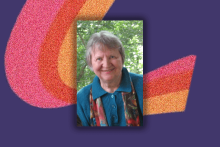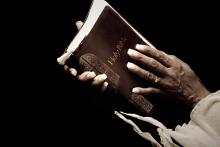feminist theology

Born in Pittsburg on Oct. 9, 1935, Letha was an independent scholar, writer, editor, and writing consultant who specialized in the intersections of religion and social issues. She passed away on Jan. 9, 2024, at a nursing facility in Charlotte, N.C. She was 88.
Her primary metaphor for God was that of a loving friend. She understood Jesus to be the perfect embodiment of the friendship that God offered. For her, this meant that just like a friend changes their likes, activities, and interests due to the growth of a relationship, God also changes because of God’s friendship with us. In any true and deep friendship, both of the friends, as well as the relationship itself, will necessarily shift and adapt. Nothing can stay the same because deep caring calls for responsiveness. “To think God doesn’t change,” Letha said, “doesn’t account for God to have empathy and compassion for us.” She wasn’t striving to put a particular branch of theology into practice, she just trusted her experience.

THERE'S NEVER A bad time to show a woman you value that she’s a woman of valor. But there are bad gifts. Just because your favorite Jesus feminist loves Mary Oliver, for instance, doesn’t mean you should gift her a wild goose — no matter how harsh and exciting the goose may be. Also, do not arrange a telegram delivered to her by a man dressed in a gazelle outfit reading the Song of Songs; her parents might be over for Sunday dinner! And I can’t emphasize this enough: Do not gift her an animatronic infant in a basket floating down a river. I learned that one the hard way.
But don’t worry, there are plenty of other options:

WHEN AUTHOR AND film critic Sarah Welch-Larson was growing up, she wasn’t a horror movie fan. That started to change when, as a teenager, she had a fateful encounter with the James Cameron film Aliens on cable TV.
The movie’s hero, Ellen Ripley, played by Sigourney Weaver, “looked a lot like my mom and had a lot of the attitudes my mom has about some things,” Welch-Larson, who writes about faith and popular culture for the online publications Think Christian and Bright Wall/Dark Room, told Sojourners. “I was captivated by that character.” Two weeks later, Welch-Larson watched the first 1979 Alien movie, directed by Ridley Scott. It frightened her and she couldn’t get it out of her head.
Eventually Welch-Larson’s interest grew into a fascination with the series as a whole. Her new book, Becoming Alien: The Beginning and End of Evil in Science Fiction’s Most Idiosyncratic Film Franchise, looks at recurring themes of evil, greed, and destruction in the Alien films through the lens of theologian Catherine Keller’s 2002 book, The Face of the Deep: A Theology of Becoming, in which Keller examines the first two verses of Genesis.
“She writes a lot about God setting everything into relationship with each other. God’s saying there’s a relationship you have with the rest of the world and with other created beings around you,” Welch-Larson explains. “Once you start to deny those relationships, you’re saying they’re not as important as what God has created you to be, and Keller says that’s the source of evil.”

I am many things – a feminist theologian, staff member at the Interfaith Youth Core, an active member of a United Methodist Church, an activist, and a mother in a transracial adoptive family. These roles are linked and each informs the other — I try to be accountable to multiple communities and am shaped by a myriad of contexts.
As such, I look up to and learn from women who model interconnected lives, are shaped by the wisdom of many spaces, and work for liberation of both themselves and communities of women.
Mercy Amba Oduyoye , mother of African feminist theology, is one of these inspiring models.
